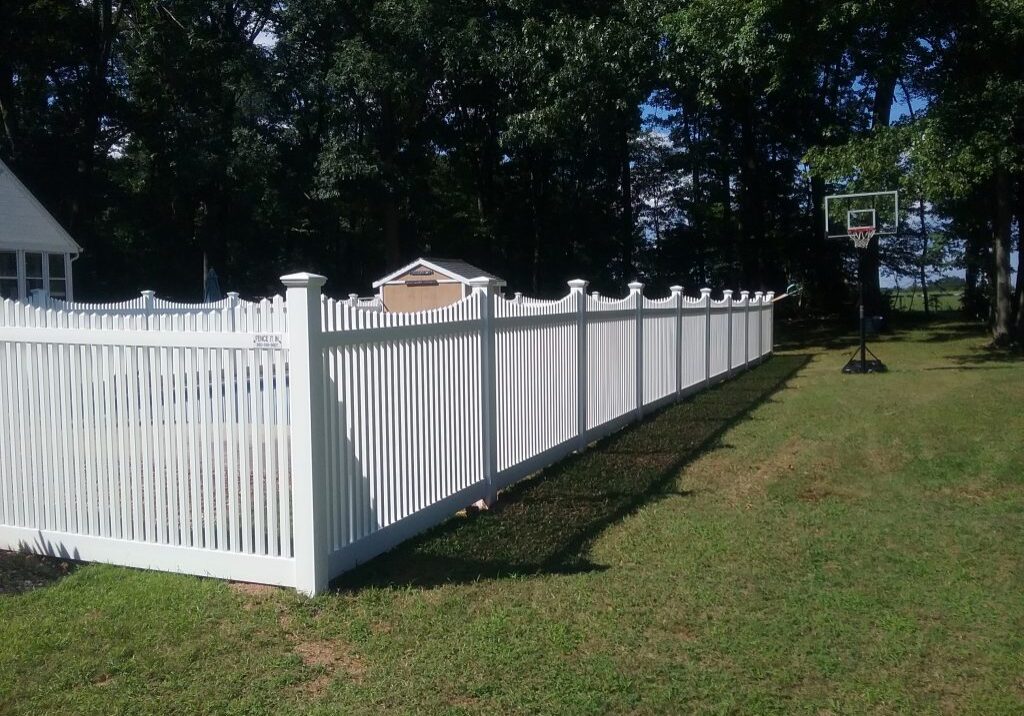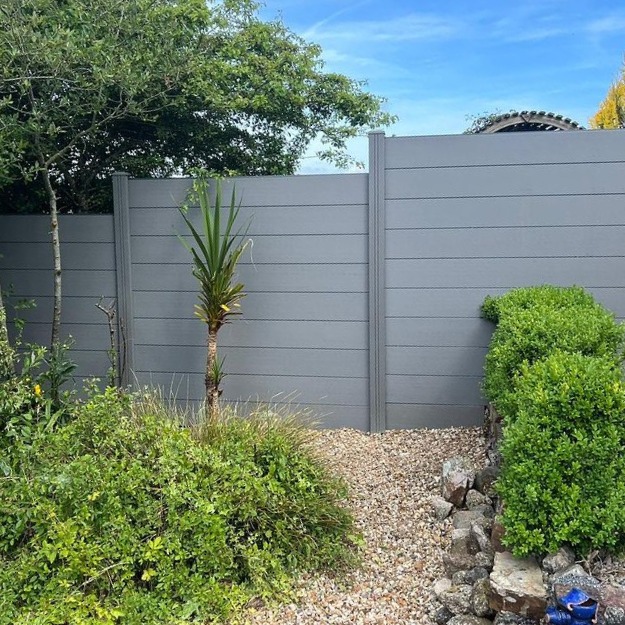All Categories
Featured

When mounting a fence, selecting the ideal material is essential to stabilizing performance, aesthetics, and budget. Wood, plastic, and aluminum are amongst the most frequently picked secure fencing materials, each with its disadvantages and toughness. This overview discovers the benefits and drawbacks of these options to aid you make a notified decision.

Timber Fencing. Pros:. Natural Beauty: Wood's ageless charm can enhance any property with its warm and traditional appearance. Personalized: You can paint, stain, or carve timber to fit your design choices. Budget friendly: Timber secure fencing is initially extra affordable compared to some other materials. Environmentally Friendly: As a renewable resource, timber is naturally degradable and often taken into consideration environmentally friendly. Disadvantages:. Maintenance-Intensive: Routine securing, painting, or staining is needed to avoid damage from climate and insects. Prone to Degeneration: Without correct treatment, wood can rot, warp, or fracture over time. Shorter Life expectancy: Usually, wood fences last 10-15 years, relying on the kind of wood and maintenance. Timber is a wonderful alternative for those that value visual appeals and want to invest in routine upkeep to protect its look and longevity.
Plastic Fencing. Pros:. Low Upkeep: Vinyl calls for minimal treatment-- just periodic cleansing with soap and water. Weather condition Resistant: It doesn't warp, rot, or give in to insect damage, making it highly durable in different climates. Longevity: Plastic fencings can last 20-30 years with little to no repair work. Style Selection: Available in a wide variety of shades, appearances, and styles, including wood-like appearances. Cons:. Higher First Expense: Vinyl fencings are much more expensive in advance compared to timber. Susceptability to Cold: In very winter, vinyl can end up being brittle and susceptible to breaking. Restricted Repair Service Options: Matching replacement panels can be challenging if damage occurs. Plastic fencing is perfect for house owners seeking a lasting, low-maintenance remedy that provides modern-day adaptability.

Light Weight Aluminum Fence. Pros:. Rust-Proof: Light weight aluminum resists deterioration, making it an outstanding option for damp or humid environments. Resilient: Despite being lightweight, aluminum is solid and can stand up to rough climate condition. Reduced Upkeep: It requires very little maintenance, normally just periodic cleansing. Long Lifespan: Aluminum fences can last years without considerable degeneration. Stylish Layout: Often utilized for decorative purposes, aluminum fencing includes a smooth, sophisticated seek to properties. Cons:. High Preliminary Financial investment: Light weight aluminum fences are among the pricier options on the marketplace. Much less Personal privacy: The open layouts common with light weight aluminum fencing do not offer much personal privacy. Susceptible to Damages: While resilient, light weight aluminum can dent if hit with enough force. Aluminum is a superb selection for property owners focusing on looks and sturdiness without calling for much upkeep.
Making Your Decision. When choosing in between plastic, wood, or aluminum fence, consider your priorities:
Timber suits those that value a natural look and do not mind placing in maintenance initiative. Plastic is the most effective choice for those seeking a low-maintenance, weather-resistant service. Aluminum uses streamlined style and durable resilience however may lack personal privacy. By thoroughly analyzing these products' features, you can select a fencing that enhances your home while satisfying your functional and visual demands.
Latest Posts
Check Out Budget-Friendly Auto Repairs with Montclare’s Exclusive Service Specials
Published May 26, 25
1 min read
Uncover Cut Costs on Car Maintenance with Montclare Auto Repair’s Limited-Time Deals
Published May 26, 25
1 min read
Find Out Save Big on Car Maintenance with Montclare Auto Repair’s Limited-Time Deals
Published May 25, 25
1 min read
More
Latest Posts
Check Out Budget-Friendly Auto Repairs with Montclare’s Exclusive Service Specials
Published May 26, 25
1 min read
Uncover Cut Costs on Car Maintenance with Montclare Auto Repair’s Limited-Time Deals
Published May 26, 25
1 min read
Find Out Save Big on Car Maintenance with Montclare Auto Repair’s Limited-Time Deals
Published May 25, 25
1 min read